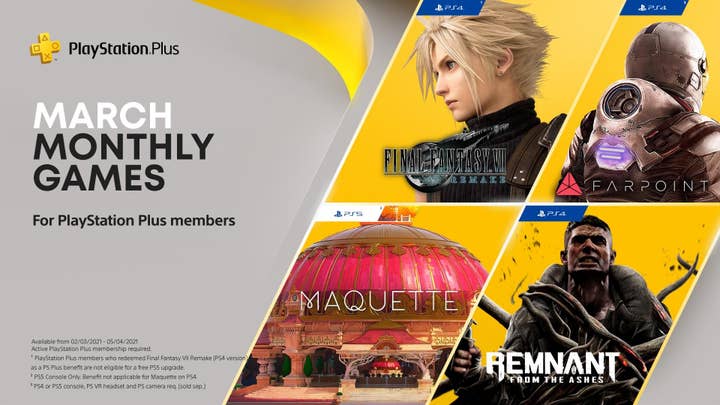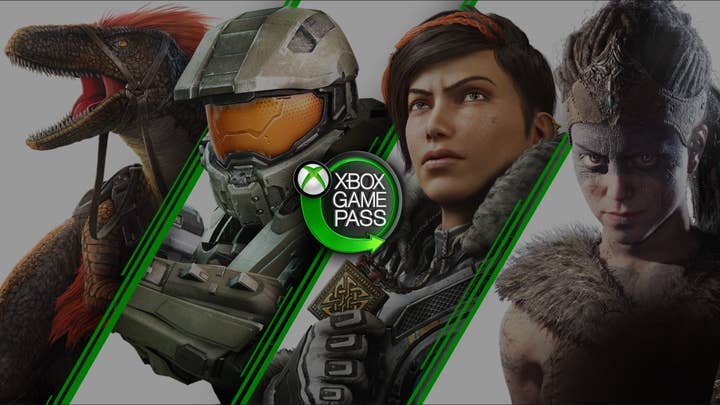Three months in, Game Pass is Microsoft's ace in the hole | Opinion
Xbox 360 all over again? The advantage Microsoft's online services afford it over Sony's confusing PS Plus are becoming more and more clear
The next generation is arriving, as is its wont, in fits and starts. One shipment at a time, one unexpected drop on online retail at a time, one price-drop from parasitic scalper at a time; the Xbox Series X and PlayStation 5 are slowly making their way into the hands of their eager early adopters. Both companies seem to be hoping to have actual stock on actual shelves for more than about five seconds by the time we enter the summer months -- a fairly reasonable line in the sand for what we might consider the end of the "launch window" and the beginning of each console's regular life as a consumer product.
That line in the sand is important not just because it reflects the end of the interminable stock shortages that have frustrated so many consumers, but because it also marks the point where those companies have effectively run out of the kinds of consumers who are eager and devoted enough to put up with that kind of frustration in the first place. The sales of XSX and PS5 up to that point are all essentially fulfilling pent-up demand that's existed since last November. Once that demand is finally fulfilled, both consoles move on to the next, far more lengthy stage of the challenge; enticing and appealing to the more sceptical consumers who weren't prepared to duck and dive around scalpers and badly configured online retail sites for months to get their hands on the new hardware.
It's not that PS Plus is commercially unsuccessful, but there is little or no sense of it being a selling point for the PS5
As we've passed over the three month mark in both consoles' lifespans, it's become easier to evaluate some of the strategies that Microsoft and Sony intend to use to build that long-term appeal. As more and more people get their hands on the hardware -- for my part, a lucky Amazon notification popping up while I was writing an early morning email a few weeks ago finally snagged me a PS5, completing the duo -- it becomes possible to see how offerings that had largely been theoretical for months are actually shaking out in reality.
At this early stage, with major software exclusives fairly thin on the ground, nowhere is this more true than in the realms of the online and game delivery services being championed by each company. One of the most striking things about these offerings is just how polarizing they seem to be in terms of consumer sentiment. Look around forums or social media to see how consumers are responding to the new systems and you quickly see that Xbox Live Ultimate -- and Game Pass in particular -- seems almost universally lauded, while PlayStation Plus, when it merits a mention at all, comes in for a significant amount of criticism.
It's not that PS Plus is commercially unsuccessful, of course -- tons of people pay for it, which is really the bottom line as far as Sony's concerned -- but there is little or no sense of it being a unique selling point, or even a selling point at all, for the PS5. Game Pass, in contrast, is pretty much always the first thing anyone mentions when describing what they like about the Xbox Series X.
My PS Plus library, as a long-time subscriber, is well-stocked, while the offering to new subscribers is extremely sparse
A big part of the problem, I think, is that PS Plus' offering continues to be structured around a core proposition which probably made sense many years ago in a market with no competing services worth a damn, but has now become awkward and, quite frankly, confusing. Here's a simple question: what games do you get to play when you subscribe to Game Pass? Easy, here's the big list. It's right there on Microsoft's website -- knock yourself out. You can play any of these games right now, as long as you're subscribed.
Okay, so what games do you get on PS Plus? Well, uh... It depends. It depends on when you first subscribed, how long you've been subscribed for, and whether or not you remembered to log in and claim the games each month.
The bottom line is that if a friend comes over to my place and sees a great PS Plus game on my system, I can't say "subscribe to PS Plus and you can get this" -- my PS Plus library, as a long-time subscriber, is well-stocked, while the offering to new subscribers is extremely sparse. By comparison, a brand new Xbox owner who subscribes to Game Pass immediately has a rich, impressive library of games to choose from. Given the existence of that option, it's damned near impossible to recommend PS Plus to anyone. On the other side of the equation, Game Pass is an incredibly strong reason for them to choose an Xbox console.

The confusion created by Sony's dogged insistence on sticking to the monthly games model is compounded by annoyance created by the extremely inconsistent system Sony has ended up with for PS4 to PS5 upgrades on some games. The recent debacle over Control -- wherein only the Ultimate Edition of the game got a PS5 upgrade, driving consumers to buy that edition when it went on sale in the PS Store, only to have the PS5 version turn up on Plus mere weeks later -- feels like a precursor to the discovery this week that Final Fantasy 7 Remake is going to be on Plus, but that the Plus edition will be the version of the game that won't be eligible for a cheap upgrade to the forthcoming PS5 update.
Understandable as commercial decisions, perhaps -- but these little episodes add up to create a sense of negativity around the PS Plus offering that Sony needs to take very seriously.
Microsoft's strongest card is being played against one of Sony's weakest... Xbox is winning this aspect of the battle by a clear margin
Compared to the practically seamless functioning (from a consumer standpoint) of Microsoft's Smart Delivery system, Sony's whole process for handling PS4 and PS5 software is already a messy, complex and buggy affair -- especially if you're using disc versions of PS4 games to allow you to play their PS5 updated versions, a situation to which the company appears to have devoted precisely zero thought and care. Sony's tacit approval for PS Plus editions of games with different support options for PS5 upgrades means the whole situation is guaranteed to cause confusion even among well-informed consumers.
The fact that this comes on top of long-running weirdness with how PS Plus' offering works -- the need to log in to the store each month to remember to claim the games, or lose them forever -- just looks really bad when stacked up against Xbox. Microsoft's effort to get both the core offering and the small details right in its Xbox Live Ultimate services, and its new console's handling of cross-generational software more generally, is hugely impressive by comparison.
It's important to acknowledge that Sony hasn't entirely stood still with PS Plus. The company has made an effort to make it into a more appealing service for PS5 owners by adding a genuinely impressive library of PS4's greatest hits to the service. However, it's hard to see that having much of an impact in terms of being a USP given the obvious, and not terribly flattering, comparisons it invites with Game Pass.
The really crucial thing is that Game Pass is a service whose value you can explain to someone in a few sentences, without littering them with caveats and buts. It's Netflix for games. Subscribe and you can play any of the games you like. There's no bizarro system of building up a library month by month, or losing access to games because you forgot to log in; moreover, the games you can play are the best version of each one, not some weird edition that can't be updated to play in full fidelity on the latest hardware. By comparison, even the process of explaining PS Plus' offering to someone is fairly tiresome -- a surefire sign that this service is failing to serve its function as an effective USP for the platform.
There are many things that Sony has done right in this generation -- I often find myself preferring the PS5 on the basis of its excellent controller alone, for example -- and with its first-party line-up over the coming year looking very strong, there's no doubt that the console has a strong competitive position. Only a few months into the race, however, the extraordinary advantage afforded by Microsoft's online and game delivery offering is starting to become very clear.
It's not just that Game Pass is fantastic, or that Sony must emulate it precisely; it's that Microsoft's strongest card is being played against one of Sony's weakest, as PlayStation's alternative offering to Game Pass is poorer value, badly thought out, frustrating, and confusing. Microsoft is winning this aspect of the battle by a clear margin. If Sony doesn't at least acknowledge its need to find some way to compete more effectively with the Game Pass offering, it could find itself giving away the lead in an area that will be crucial to many consumers' purchase decision.









